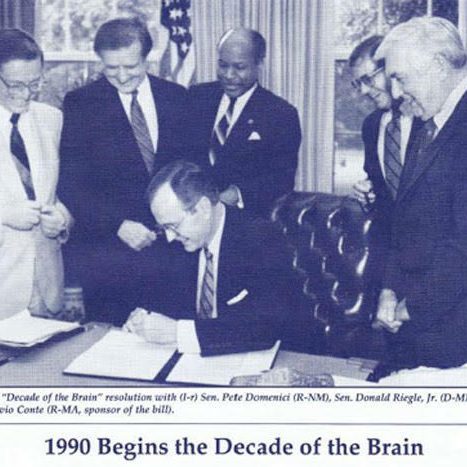The Decade of the Brain
"It is no news that since the 'Decade of the Brain' of the 1990s, the brain has become a major focus of attention."
“(...) Starting in the following decade, that focus became itself the object of considerable interest to scholars in human sciences such as anthropology, disability studies, history, and sociology, who have delved into aspects of what has been variously called the ‘neural turn,’ the ‘neuro-turn,’ and the ‘neuroscientific turn.’ While these labels sometimes refer to academic developments in the human sciences themselves (for example, the appearance of neuroanthropology, neuroeducation, neurolaw, neurotheology, and others), they apply to a more widespread phenomenon. Neuroscientific research has attracted lavish funding in North America and Europe; the World Health Organization considers neurological conditions one of the greatest threats to public health; and while it still speaks of ‘mental health,’ successive directors of the U.S. National Institute of Mental Health, the world’s largest scientific organization in the area, have insisted that mental disorders must be understood and treated as brain disorders. Beyond research and the clinic, the brain and neuroscientific information form the core of a vast universe that ranges from crassly commercial enterprises to lofty metaphysical speculations. Within that universe, the undisciplined multiplication and the often comical abuse of the prefix neuro- are like the small signals that confirm the existence of a large-scale phenomenon.”

The “Decade of the Brain” (1990-1999), was an initiative involving the U.S. Library of Congress and the National Institutes of Health to enhance public awareness of the benefits of studying the brain, is designated by U.S. President George H.W. Bush.
Over the years, our understanding of the brain—how it works, what goes wrong when it is injured or diseased—has increased dramatically. However, we still have much more to learn . Powerful microscopes, major strides in the study of genetics, and advanced brain imaging devices are giving physicians and scientists ever greater insight into the brain. Neuroscientists are mapping the brain’s biochemical circuitry, which may help produce more effective drugs for alleviating the suffering of those who have Alzheimer’s or Parkinson’s disease. — George H.W. Bush
With these words, President Bush announced the beginning of the Decade of the Brain (DOB) in 1990.
Download the original document hereObtained from: http://www.braininitiative.org/milestones/
REFERENCE:
http://www.braininitiative.org/milestones/













0 comments
Sign in or create a free account